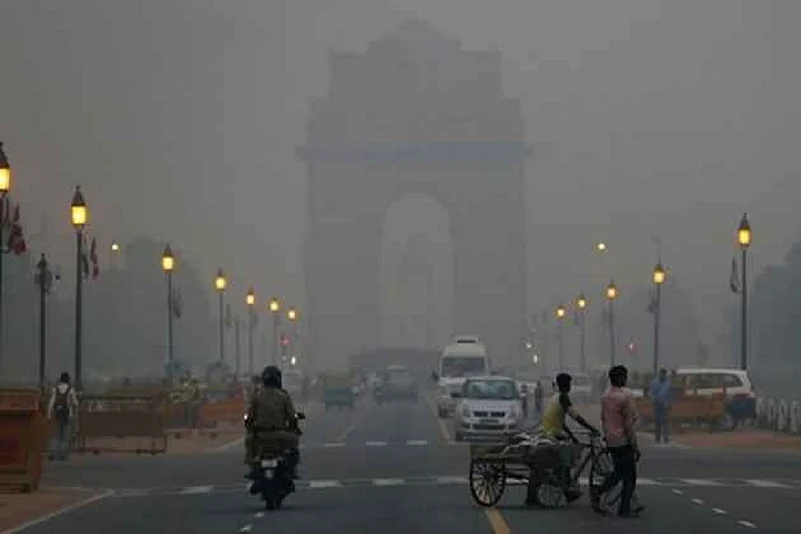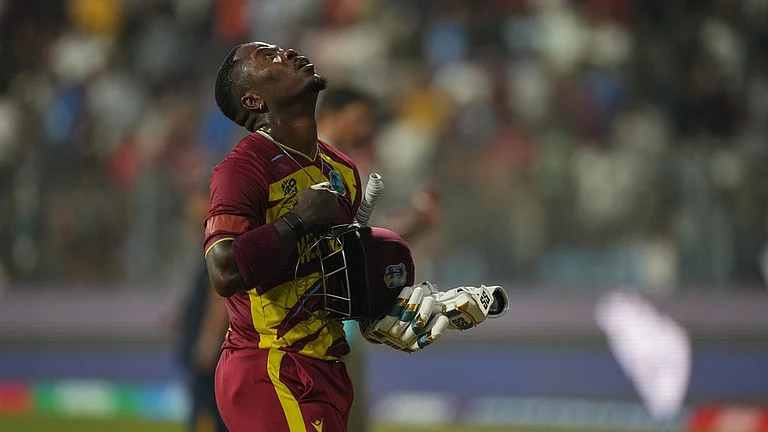A haze engulfed the national capital as the air quality nosedived to "very poor" category with several areas inching towards "severe" pollution levels, authorities said Saturday.
The overall Air Quality Index (AQI) of Delhi was recorded at 337, which falls in the 'very poor' category and is the highest of this season, creating hazy conditions, said data from the Central Pollution Control Board (CPCB).
About 31 areas in Delhi recorded 'very poor' air quality while two areas showed 'severe' air quality levels, it said.
CRRU Mathura Road and Dwarka Sector 8 witnessed 'severe' level of pollution at 414 and 402, respectively, the data said.
Anand Vihar, DTU, Mundka, Narela, Nehru Nagar and Rohini all showed 'very poor' air quality, it said.
An AQI between 0 and 50 is considered "good", 51 and 100 "satisfactory", 101 and 200 "moderate", 201 and 300 "poor", 301 and 400 "very poor", and 401 and 500 "severe".
The deterioration of air quality comes a day after fire crackers were burst on the occasion of Dusshera even after repeated appeals by authorities to go for eco-friendly celebrations.
On Wednesday and Thursday, the air quality had deteriorated to the 'very poor' category, alarming authorities who were planning to roll out more stringent measures to combat pollution.
The air quality temporarily improved on Friday after rainfall, but it worsened again.
An official warned that the PM2.5 was reaching dangerous levels.
The Supreme Court appointed Environment Protection Control Authority (EPCA) had on Friday held a meeting with state governments and Delhi government officials to discuss the pollution situation in the national capital.
An EPCA member said stock of the situation was taken and it was decided that special attention would be given to vulnerable hotspots where 'poor' or 'very poor' air quality is observed.
On Saturday, the PM2.5 (presence of particles in the air with a diameter of less than 2.5 micrometres) touched a new high at 158. The PM2.5, also called "fine particulates", can be a matter of more serious health concern than PM10.
The PM10 level (presence of particles in the air with a diameter of less than 10 micrometres) in Delhi stood at 270 and the PM 2.5 level was recorded at 125, according to the data from the Centre-run System of Air Quality Forecasting and Research (SAFAR).
A CPCB official said a number of factors were responsible for the deteriorating air quality, including vehicular pollution, construction activities and meteorological factors like the direction of wind which is now flowing from stubble burning areas.
Images by NASA showed rampant stubble burning in Punjab and Haryana in the last two weeks.
Delhi Chief Minister Arvind Kejriwal had Friday warned that the city would become a "gas chamber soon" as the Centre, Punjab and Haryana governments did "absolutely nothing" for farmers involved in stubble burning.
"V sad that Central, Punjab and Haryana Govts did absolutely nothing for the farmers. As a result, the farmers will suffer on one hand and Delhi will become a gas chamber soon (sic)," he tweeted.
Deputy Chief Minister Manish Sisodia Thursday appealed to the Centre and the governments of Haryana and Punjab to initiate measures in the wake of the deteriorating air quality in north India, including Delhi.
(PTI)


























